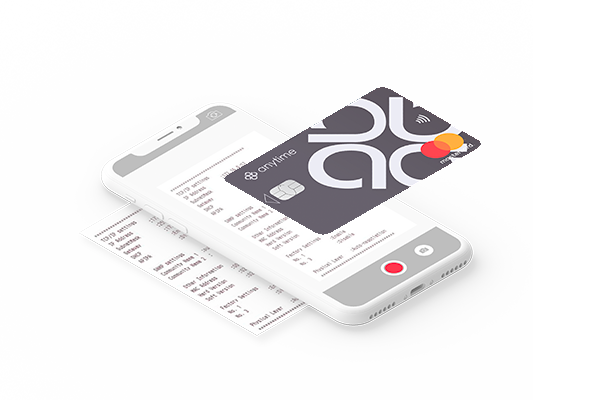La gestion des notes de frais peut rapidement devenir un poids dans l'entreprise si elle n'est pas organisée. C'est pourquoi instaurer une politique de traitement des notes de frais claire est important.

Mettre en place une politique claire de traitement des notes de frais au sein de votre entreprise est d’importance capitale pour que tout se passe dans les meilleures conditions. Grâce à des règles clairement établies et bien diffusées auprès de tous les collaborateurs, vous évitez les problèmes de gestion, mais aussi les tensions et malentendus.
Règle 1 : Les types de dépenses prises en charge
Entrent dans la catégorie des frais professionnels toutes les dépenses réalisées par un salariés dans le cadre de la réalisation de sa mission au sein de l’entreprise. Les frais professionnels font l’objet d’un remboursement intégral ou partiel selon la nature de la dépense. S’il existe des dispositions légales minimum concernant le remboursement, chaque entreprise demeure libre d’offrir à ses collaborateurs de meilleures prestations. C’est pourquoi il est important de dresser une liste des frais pris en charge.
Frais de déplacement
Dans le cadre d’un déplacement professionnel un collaborateur peut être remboursé :
- D’une location de voiture avec le carburant
- Des péages
- D’indemnités kilométriques dans le cas de l’utilisation de son véhicule personnel.
Pour bénéficier d’un remboursement, le salarié doit mentionner dans sa note de frais la date et le lieu de la mission ainsi que le motif du déplacement et le nombre de kilomètres parcourus.
Dans le cadre des frais kilométriques, le salarié ne peut pas compter les kilomètres correspondants aux trajets entre son domicile et l’entreprise, car ils sont déjà pris en charge par l’abattement sur salaires de la déclaration des revenus.
Frais de repas et d’hébergement
Dans le cadre du déplacement d’un collaborateur, les frais d’hébergement doivent être remboursés si la distance entre le domicile du salarié et le lieu de la mission est supérieure à 50km ou si le trajet ne peut être parcouru en moins d’une heure et demie en transports en commun. Les frais d’alimentation du collaborateur en déplacement sont également pris en charge. Quant aux repas d’affaires avec les clients, ils peuvent être remboursés si le salarié précise le motif ainsi que le nom, le poste et le contact de chacune des personnes invitées par l’entreprise.
Frais de télétravail
Lorsqu’un collaborateur effectue sa mission en télétravail, il est indispensable de prendre en charge une partie de ses frais. Il peut tout aussi bien s’agir d’un pourcentage du loyer que d’une portion du forfait internet ou téléphone. Ceci dit, la prise en charge ne peut excéder 50% du montant des dépenses.
Autres dépenses
D’autres dépenses peuvent également être supportées par les salariés puis remboursés par l’entreprise. Il peut s’agir de frais :
- De documentation : revue professionnelle, lettre d’information…
- D’habillement : si une tenue spécifique est requise au sein de l’entreprise, mais qu’elle n’est pas fournie par celle-ci
- De communication : les frais de connexion internet, de communications téléphoniques ou de frais postaux
- De cadeaux aux clients lors d’un déplacement par exemple.
Règle 2 : Le mode de remboursement adopté : réel ou forfait
Une entreprise peut choisir de réaliser le remboursement de frais professionnels sous deux formes : au réel ou au forfait. Chaque mode de fonctionnement a ses propres avantages et inconvénients qu’il convient de prendre en compte.
Remboursement au réel
Le remboursement au réel correspond à une prise en charge de l’intégralité des sommes engagées. Dans ce fonctionnement, le salarié règle ses dépenses avec son propre argent et collecte tous les justificatifs nécessaires pour se faire rembourser. Il remplit ensuite une note de frais qu’il transmet à l’entreprise accompagnée des justificatifs pour obtenir le remboursement. Cette procédure présente l’avantage de couvrir l’intégralité des frais pour le salarié. Toutefois, elle demande un temps de traitement long et l’entreprise ne maîtrise pas l’intégralité des dépenses réalisées sur place.
Remboursement au forfait
Le remboursement au forfait est plus simple puisque l’entreprise indemnise son salarié selon un barème minimum déterminé par l’URSSAF. Le collaborateur doit néanmoins fournir quelques justifications, telles que la raison de la dépense, la date et les circonstances, mais il n’a pas besoin de fournir de nombreux justificatifs. Pour l’entreprise, ce fonctionnement est particulièrement facile à gérer puisque les montants sont plafonnés et anticipés. Toutefois, cela peut représenter un manque à gagner, soit pas l’entreprise lorsque les dépenses réelles sont en dessous du barème, soit par le salarié dans le cas inverse.
Règle 3 : Les justificatifs nécessaires
Pour chaque type de dépense, l’administration fiscale impose aux entreprises de disposer de certains justificatifs pour rembourser le collaborateur. Accepter de rembourser sans justificatif approprié peut être soumis à un redressement en cas de contrôle fiscal.
Les justificatifs obligatoires sont les suivants :
- Pour les frais de repas : un reçu de restaurant, de boulangerie ou de supermarché comportant la date et le lieu
- Pour un repas d’affaires : le reçu du restaurant mentionnant le nombre de couverts complété de la liste exhaustive des invités avec leur nom, celui de leur entreprise et leur fonction
- Pour les indemnités kilométriques : la copie de la carte grise de la voiture utilisée faisant apparaître la puissance fiscale du véhicule
- Pour les frais de transports en commun : un justificatif du paiement des billets
- Pour les frais de taxi ou d’Uber : le ticket remis par le chauffeur
- Pour les frais d’hébergement : une facture détaillée mentionnant la quantité de nuitées, l’ensemble des frais et un solde nul
- Pour les frais divers : un reçu mentionnant le nom du prestataire, le montant de l’achat, la date, la liste des articles achetés et le mode de paiement.
Règle 4 : Délai de traitement et canal de remboursement
Une dernière chose à préciser dans votre politique de gestion des notes de frais et le délai et la méthode de remboursement. En effet, c’est grâce à ces informations que vous éviterez à vos collaborateurs de se demander où en est le traitement de leur note de frais et d’interroger le service financer régulièrement. Vous évitez ainsi les tensions au sein de l’entreprise qui nuisent à la qualité de travail de vos salariés.
Bien sûr, pour que cette règle puisse être respectée, il est essentiel qu’elle soit raisonnable. Ainsi, vous ne pouvez pas prévoir un délai de traitement d’une semaine. Un mois semble plus crédible tout en sachant qu’il vaut mieux que le délai réel soit plus court que plus long que le délai annoncé.
Préciser la méthode de remboursement dans votre est également intéressant pour vos salariés qui sauront d’office comment ils seront remboursés.
A noter : Attention à la fin des tickets papiers !
Avant le 1er juillet 2019, vous étiez obligés de conserver vos factures de notes de frais. Mais, depuis cette date, c’est terminé ! Concrètement, grâce à un arrêté du 23 mai 2019 fixant les conditions, il vous suffit désormais de numériser vos justificatifs et vous pouvez ensuite les jeter.
Assurez-vous que vous êtes bien équipés pour vous mettre en conformité avec cette nouvelle exigence de la loi.
Pour résumer
Le traitement des notes de frais nécessite une organisation sans faille. Le traitement manuel nécessite plus de temps et augmente les risques d’erreurs. C’est pourquoi il est vivement conseillé de vous doter d’une solution numérique moderne qui facilite la tâche. Sinon, Anytime va plus loin en vous proposant une solution complète qui vous permettra de supprimer totalement les notes de frais pour alléger le quotidien de vos salariés.








